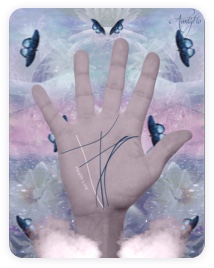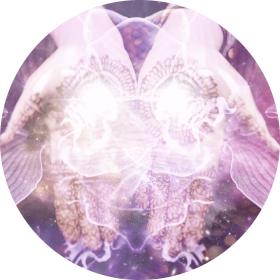Top 10 Dreams

What are the top ten dreams according to science?
Dreams have fascinated all of us for centuries and their meanings I have a massive amount of dream books. All these dream booked seemed to me like a waste of time, but they got me here, running this dream website.
I ought to have read more superb dream books to understand. I should have learned a foreign language. When I was young, I should have formed close friendships rather than drinking too much. But I did something all along. I continued to write to survive, then one morning I got up and thought like a visionary, and decided to just group all the most popular dreams in the top 10 --- of course mentioning what they all mean.
Here will be the top ten dreams - their possible meanings supported by several scientific studies. Much like the one I have quoted, I've an enormous bin of dream books.
1. Falling Meaning:
A falling dream could signify losing control or fear of failing in my view, and you know that little “falling” feeling you may feel before you go to sleep that is the feeling where your brain is just getting read for rest. A study in the Journal of Sleep researched the connections between dreams of falling and anxiety and stress. Much more frequent falling dreams were reported in participants with high-stress levels. To free fall int he dream is about making sure that you can “flow” in real life, and know that things are going to get better.
2. Being Chased Means:
Yes, we have all had this crazy dream -- this dream could represent avoiding an issue or confrontation in waking reality. In my research a paper by Hall et al: (2004) discovered that those that have chasing or being chased in dreams as a common theme in both fear and anxiety. Participants in this study reported these dreams frequently during high stress or during unresolved disputes, it was quoted in this paper one of the most popular dream meanings.
3. Losing Teeth - Meaning:
Teeth have always since I have been doing this been number one, but here the fear of loosing teeth during the dream --- could represent anxiety about aging, losing power or being powerless. Research in the Psychoanalytic Review by Rosman and McClord (1980) associated this with inner insecurity and self doubt. The study infers, when I read the summary -- that these dreams generally happen during significant life transition events.
4. Flying - Dream Meaning:
Of course, we have all had these. Maybe you were flying in the sky or on a plane. These dreams might represent independence, escape or gain of perspective. A study in the Journal of Personality and Sociological Psychology (Schredl1 and 1 Erlacher 2008) reported that flying dreams are more frequent in individuals who are creative and wish to explore. So, just know that if you have this dream make sure you get your “creativity” in gear.
5. Public Nudity Dream Meaning:
This very embarrising dream! This particular dream refers to feelings of vulnerability, shaming, or exposure.Research by Nielsen Levi (2007) in the International Journal of Dream Research provides a great overview and indicates that public nudity memories reflect social anxiety and worries over how others perceive the dreamers.
6. Exam/Test Dream Meaning:
Have you every had that really nervous dream: about taking examinations? Well, this might represent failure fears or evaluation. And Zadra Donder (2000) discovered that exam dreams are prevalent among students and professionals working under performance pressure. These dreams are more frequent during stressful periods like exam or job assessments.
7. Being Late In Dream:
I am always late…how about you? Or are you on time? Dreams of being late could suggest feeling overwhelmed, uncontrolled or unprepared. In the paper I found called (Barrettes, 1996), individuals who experience dreams about being late typically report that they're stressed by deadlines along with other time pressures in their woke lives.
8. Cars:
This is a super easy interpretation --- in that dreams of being in the sky --- might represent independence, liberation or higher understanding -- going on a journey as well. Studies by Schredl Erlacher (2008) in the Journal of Personality and Sociology discovered that individuals who frequently fly displayed more innovative thinking and a stronger desire to get away from reality.
9. Death Dream Meaning:
A bit of a morbid dream but normally rather common. In my view, dreams concerning death might represent change, the conclusion of one stage and also the start of another. A study in the Journal of Nervous and Mind Disease (Domhoff 2003) reported that death dreams happen frequently during life changes. These dreams might help individuals process and accept those transitions.
10. Cheating Dream Meaning:
We have all had this weird dreams of infidelity, well it might represent betrayal, relationship insecurity or guilt. Research by Lamberg and Cartwright (1992) showed infidelity dreams might reflect underlying issues in relationships. These dreams may arise because partners lack trust or have conflicts not resolved.
So there you go! Dreams remain a subject of investigation that crosses psychology, neuroscience, and of course spirituality.
References
Zadra, A. L., 1and1 Donderi, D. C. (2000). Nightmares; bad dreams: Their prevalence and connection with wellbeing. Journal of Abnormal Psychology 109 (4): 273-281.
Schredl, M-1and1 Erlacher, D (2008). Lucid dreaming frequency in a German rep. Perceptual ; Motor Skills 106 (3) 1149-1154.
Hall C. S., Van de Castle R. L. 1and1 Domhoff G. W. (2004). The content analysis of dreams. Journal of Sleep Research, 33 : 351-362.
Nielsen, T. 1 Levin, R (2007). Nightmares: New neurocognitive model. Sleep Medicine Reviews 11 (4): 295 310.
Barrett, D. Trauma ; dreams. Harvard University Press,
Domhoff, G. The Scientific Study of Dream: Neural Networks, Cognitive Development; Content Analysis. American Psychological Association.
Cartwright, R., 1and1 Lamberg, L. (1992). Crisis Dreaming: Solving Your Problems With Your Dreams. HarperCollins, p.
Rosman B. L. 1 ; McCord M. 1980. Dreaming of losing teeth: A search for explanations. Psychoanalytic Review 67 (2): 35-52.
By Florance Saul
May 18, 2024







